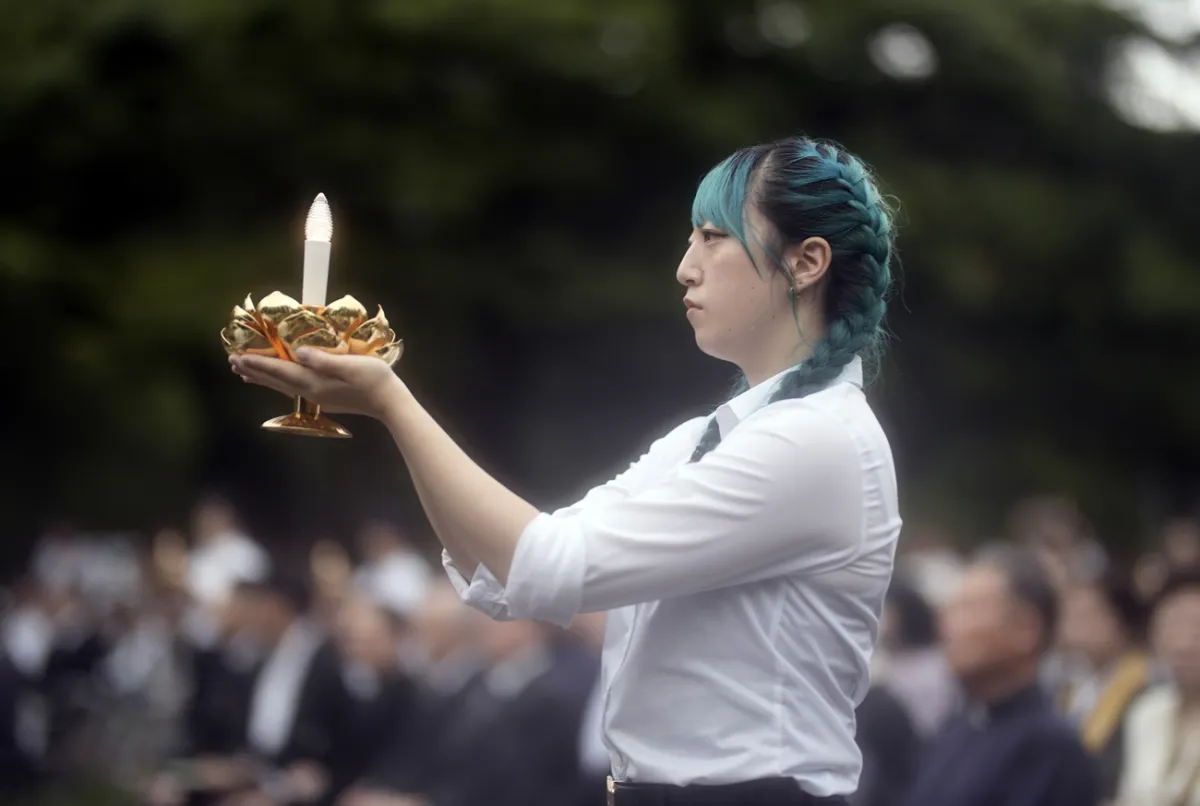Eighty Years After Hiroshima, Many Japanese Teens See Future With Nuclear Bombs
I'm a reporter specialised in Swiss foreign affairs, Japanese-Swiss relations and assisted suicide. I'm also an editor in the Japanese department. I worked for a Japanese newspaper for 10 years, covering a wide range of topics including crime, politics, and sports. Since 2017, I have been writing for SWI swissinfo, focusing on social issues, particularly assisted suicide.
-
More from this auth
Japanese Departme
-
日本語
ja
原爆投下から80年、10代は核問題をどう見る?
Read more: 原爆投下から80年、10代は核問題をどう見る
中文
zh
广岛原子弹爆炸八十年后,日本青少年发出新呼声
Read more: 广岛原子弹爆炸八十年后,日本青少年发出新呼
As atomic bomb survivors age, opportunities to hear their testimonies directly are diminishing. Today, 90% of Japan's population was born after the war. The average age of surviving hibakusha, or atomic bomb survivors, has now surpassed 86. For the first time, the number of surviving hibakusha has fallen below 100,000 this year.
A nationwide survey conducted by the Japanese Red Cross Society in 2025 found that one in two respondents had heard firsthand accounts of the war. Among teenagers, however, that figure dropped below half. The survey covered 1,200 people aged from their teens to over 60.
While older generations often learned about the war from grandparents and relatives, today's teenagers largely depend on the dwindling number of war witnesses.
Watch: A survivor reflects on the day the atomic bomb was dropped
The survey revealed a modest generational divide in attitudes toward nuclear weapons and concerns about Japan's potential involvement in future conflicts. Younger respondents were more likely to worry that Japan might one day become a party to war.
Across all age groups, a majority agreed that nuclear weapons should neither be possessed nor used. But the share of those who considered possession for self-defense unavoidable was highest among teenagers, at 32%.
External Content“While many are committed to the abolition of nuclear weapons, they are also conflicted about issues of possession and use,” Hiroto Oyama, deputy director of the International Department at the Japanese Red Cross Society, told Swissinfo.
A separate survey conducted by the Institute of Statistical Mathematics in 2022 highlighted similar contrasts: the younger the respondents, the more likely they were to view the US atomic bombings as justified. Among teenagers, one in four held this view – the highest proportion of any age group. They were also less likely to believe that nuclear disarmament contributes to global security.
Watch: A Japanese journalist reflects on differing perceptions abroad
According to the Red Cross survey, more than 80% of respondents across generations said it was necessary to pass on memories of the war.
Watch:“We may be the last generation to hear directly from survivors” - Japanese high school students call for a nuclear-free world in Geneva
Edited by Virginie Mangin /gw

Legal Disclaimer:
MENAFN provides the
information “as is” without warranty of any kind. We do not accept
any responsibility or liability for the accuracy, content, images,
videos, licenses, completeness, legality, or reliability of the information
contained in this article. If you have any complaints or copyright
issues related to this article, kindly contact the provider above.
Most popular stories
Market Research

- Tradesta Becomes The First Perpetuals Exchange To Launch Equities On Avalanche
- Nigel Farage To Headline At UK's Flagship Web3 Conference Zebu Live 2025
- Dexari Unveils $1M Cash Prize Trading Competition
- Nebeus Overfunds Equity Crowdfunding Campaign With €3.6M Raised, Reflecting Growing Demand For Regulated Cryptofinance Solutions
- “Farewell To Westphalia” Explores Blockchain As A Model For Post-Nation-State Governance
- Digital Gold ($GOLD) Officially Launches On Solana, Hits $1.8M Market Cap On Day One





















Comments
No comment